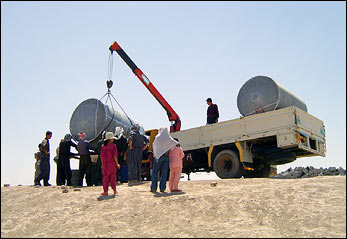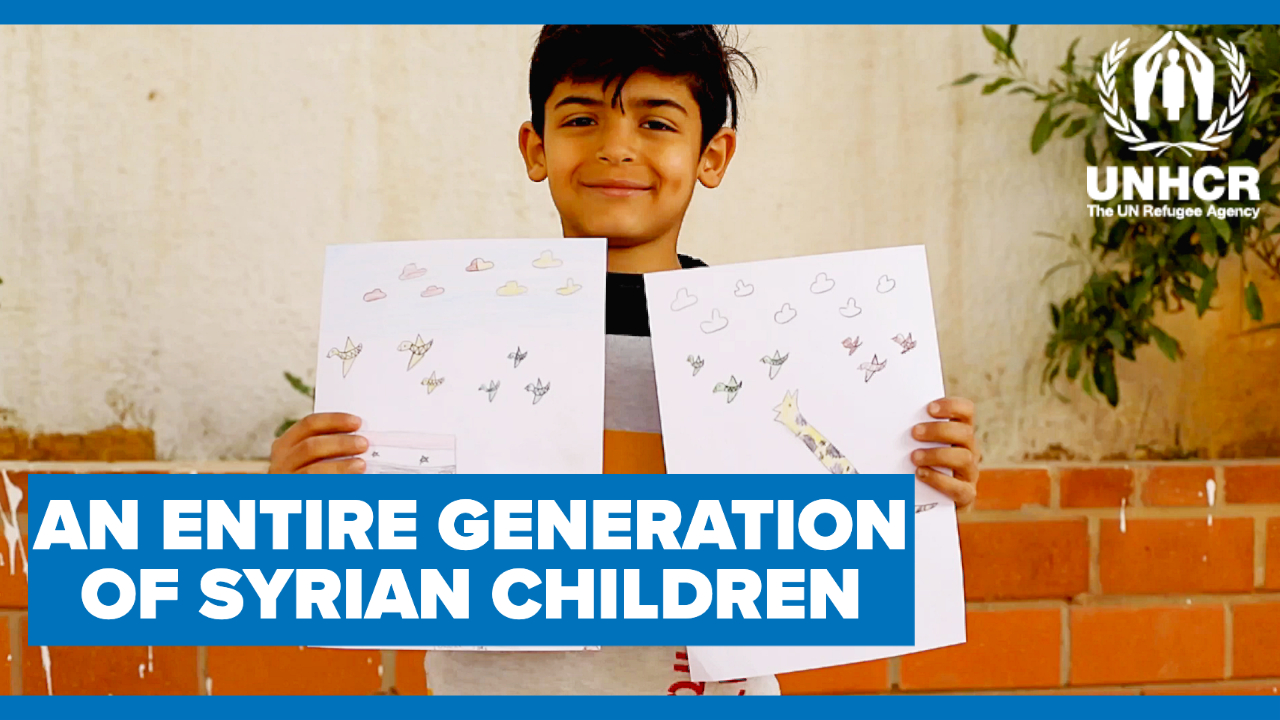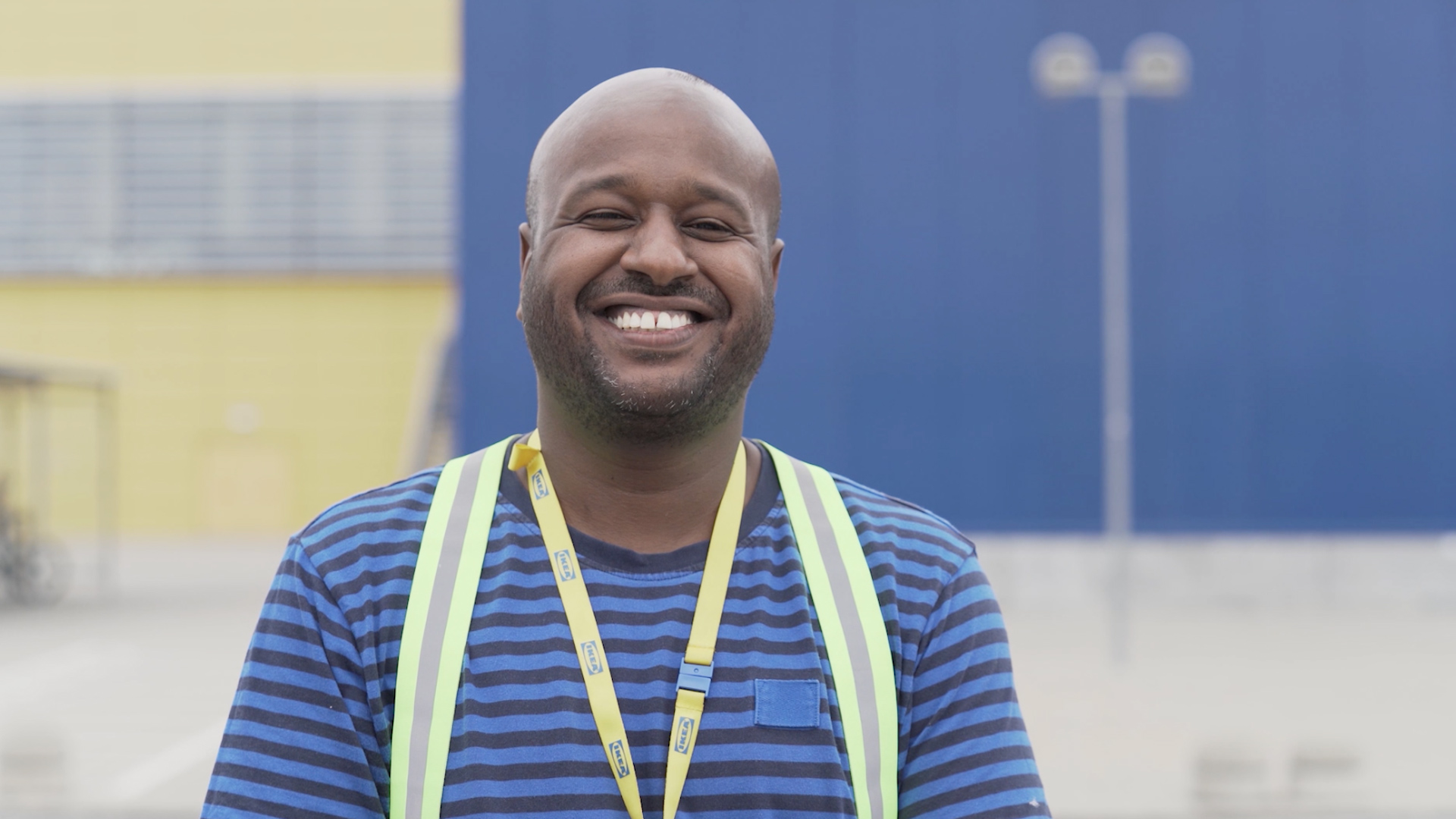Feature: A day in the life of Dengawa village, northern Iraq
Feature: A day in the life of Dengawa village, northern Iraq

MAKHMOUR, Iraq (UNHCR) - It has been two hours. The water tanker has not arrived. The people of Dengawa village are grumbling under the baking mid-day sun. There has been no delivery for the last two days and they are agitated.
Before leaving the UN refugee agency's northern Iraq regional office in Erbil, 90 minutes away by jeep, we tried to get assurances from our non-governmental organisation partner that there would be a delivery today. Three of our local staff try to reassure the worried village elders.
Soon, a tanker emerges, kicking up a dust storm in its wake on a distant sand dune. The people of Dengawa in Erbil's Makhmour district heave a sigh of relief and proceed to queue up with their buckets.
In most places in this parched land, water supply is a major problem. But here at Dengawa, a steady supply is crucial for these 200 Iraqi Kurds belonging to 38 families who are starting a new life, literally from ground zero.
The village was dynamited and bulldozed to rubble 17 years ago during Saddam Hussein's campaign to reconfigure the nation's demographic makeup in a bid to strengthen his grip on power. The people had then fled to collective settlements in the Erbil area. When Saddam's government fell in April, these displaced people drifted back to Dengawa after the Arabs who had occupied their land agreed in a settlement mediated by the Coalition Provisional Authority (CPA) to share this year's harvest of wheat and barley.
The villagers of Dengawa were among some 800,000 internally displaced people, or IDPs, who had been caught in various conflicts and waves of expulsions carried out by the previous government against ethnic minorities - mainly Kurds, but also against Turkmen, Assyrians and to some extent Arabs.
After the collapse of the government in Baghdad, some IDPs began trickling back to their original villages. In many areas, there were problems - lack of basic infrastructure and shelters, complicated and potentially explosive property disputes and, in some regions, the presence of unexploded ordnance.
Soon after re-establishing its presence in Iraq, UNHCR began identifying areas where returns are possible and less problematic. The agency subsequently selected initially four villages where returns have taken place and decided to make them a showcase for what it plans to do to help in the return of IDPs in collaboration with local authorities, the CPA, other UN agencies and relief organisations.
Dengawa is one of those pilot villages. In June, UNHCR handed out tents, blankets, kitchen sets, plastic sheeting, hurricane lanterns, stoves and jerry cans. Earlier in August, it brought cement and concrete blocks for the villagers to start building their houses.
We visit Dengawa almost every day to see the progress of work, discuss problems and plan for the distribution of more shelter materials. Each day, we see joy in the faces of the men and women as layers of cement blocks rise and their houses take shape.
On this day, there is an international team of television journalists who had come from Baghdad to film a day in the life of Dengawa. A reporter, sweating profusely, staggers out of his car and asks, "Why here, why in the middle of nowhere" has UNHCR decided to rebuild a village?
The reporter and his crew join us as we meet the village elders in a mud hut. Glasses of water and yogurt are passed around. The elders tell the reporters Dengawa is home, a place to grow wheat and barley in fields as far as the eye can see. They point to a graveyard on a nearby hill, where their fathers and grandfathers lay buried. It is hallowed ground where they pray to honour and appease the ghosts of their forebears and loved ones.
The crew films an old woman baking nan - a flat bread that is a daily staple in this part of the world. It cajoles two lovely teenagers in red and orange frocks and shawls to pose as they fetch water. Children horse around to get attention.
A truck arrives carrying two water tanks donated by the UN Development Programme as part of the UN's collaborative effort to rebuild the village from dust.

The witching-hour nears and we leave. We see a backhoe continuing to dig methodically a trench to lay pipes through which water will be brought in from an Arab village 3 km away.
When the pipeline is completed, life will be a little bit easier for the people of Dengawa. But there is still a school to build, and a medical clinic and miles to go before everything is done.
By Taweechai Termkunanon
UNHCR Field Officer in Makhmour, Iraq







